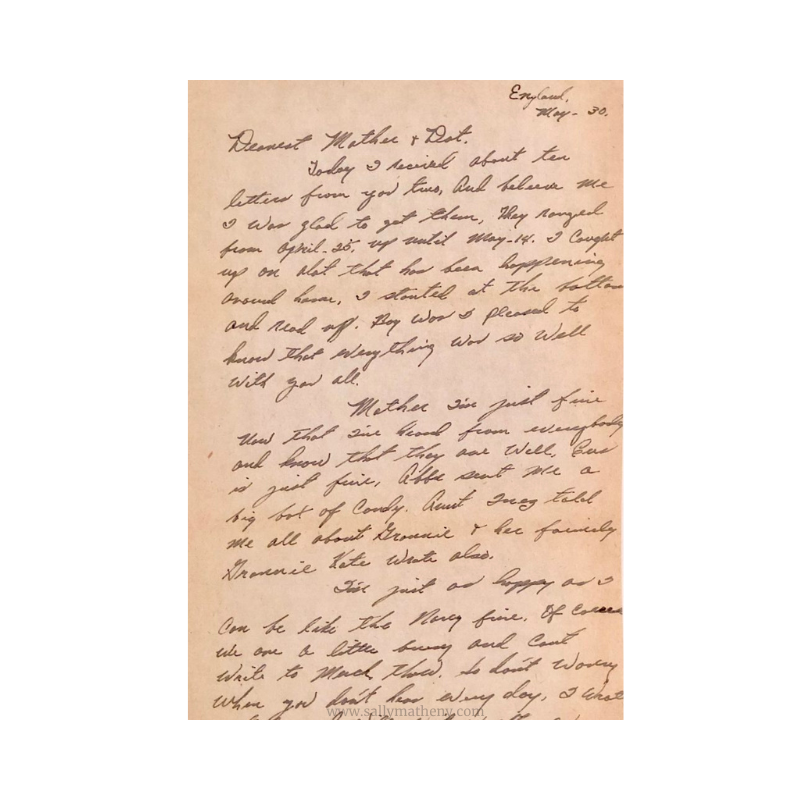
WWII Veteran’s Letter and His Service Inspire Us
No matter how big or small we think our contribution is in life, this WWII veteran’s letter and his service inspire us all to give our best. The letter was written just before WWII Navy sailor, Charles H. Walker took part in the invasion at Normandy.
Writing a Letter Home During WWII
Two weeks prior to the invasion, Charles wrote to his mother:
(Permission for use by Sally Matheny from Charles H. Walker)
May 14, 1944
“Dear Mother,
I will write you a few lines tonight to let you hear from me. These few lines leave me in good health and getting along fine. I hope you are well.
Mother, I think of you and Dad a lot these days and would like to very, very much see you. Of course, I don’t think it will be as long as it has been until I’ll be back in the states. Not for good, but for a leave, I hope. I think of the rest of the family, too. Of the little girls and of Sis. I know that it will be one more happy day for me when I do get home.
Right now, I’m going to do all I can to get this war over with. My part is only a small one, but I’m proud I can do it, and I’m going to do it as best I can.
Mother, I’ve been in the Navy fifteen months now. And I’ve never been on report or had any extra duty or anything yet. I’m going to try and have my record as clean as if I stay in for 15 years. It’s just as easy to do it right as it is wrong. . .”
Good night, Mother.
Your Son,
Charles
Charles H. Walker,Excerpt of letter written on May 14, 1944.
The Value of an Education
Prior to the war, Charles Walker’s education went as far as the seventh grade. He then went to work for Duke Power. When his turn came to serve in the war, he asked to be trained as a gunner.
The Navy denied his request. They wanted to make use of his electrical training. Charles said at first, he was disappointed, but later realized the decision probably saved his life.
Charles also realized the value of an education. He wrote home telling his sisters to study and stay in school. He said his schoolwork in the Navy would have been a lot easier if he had stayed in school when he was a teen.
His Contribution to the War Effort
Charles was determined to do well. Eventually, he became an electrician and served on board the USS LCI #707, sweeping for mines. He advanced in rank and later served as the senior electrician on the USS LCF #27.
As the sole electrician on board, he was in charge of making sure the rockets fired correctly on Normandy’s beaches. It was his hope to help create a safer landing for our troops going ashore.
When he wrote the letter home in May of 1944, he was twenty-two years old and he considered his role in the war as a “small” one.
I disagree.
If the electricity had failed, the sweeping for mines would have come to a halt. Lives may have been lost on his ship, as well as others. Without everything running smoothly, the rockets would not have launched and more lives could have been lost.
Every person on board had a job to do. Whether it was sweeping for mines or sweeping the deck. It all mattered. Doing it well mattered even more.
Regardless of the significance of his job, Charles planned to give his best. He persevered through many monotonous days at sea.
His Sorrow
Occasionally, Charles’ days were punctured by kamikaze pilots. One plummeting plane was so close to Charles standing on the deck, when it crashed into the sea, he felt the force of it tug on the pant legs of his sailor suit.
Later, as the crew fished the Japanese pilot out of the water, Charles found the suicide method of combat, especially for such a young man, unsettling.
A similar sympathy arose when he observed the frightened, German POWs on the shores of Normandy. Charles said many were his age, or younger. Noticing the terror on their faces, he felt sorry for them. They’d been fed lies about what their fate would be if captured.
Stressing the necessity of America’s involvement in the war, Charles said he was proud to serve his country and to help the oppressed. He realized most of the Japanese and German soldiers were simply following orders, like everyone else in the war.
I remember wishing Charles a “Happy Veterans Day” when he was 95 years old. Every Veterans Day, I am thankful for him and all of our veterans who chose to serve our country honorably. Or, as Charles once said, those who did it the “right way.”
This Veterans Day, my friend and hero, Charles “Charlie” Walker, is no longer with us. He went home to be with his Lord in February 2019. He is greatly missed.
A Special Thanks
To those veterans who are still here with us today, whatever you consider as your “small part” in service to our country, I consider it monumental.
Thank you for your service.
I’d also like to give a special shout-out to my Daddy who served in the Air Force 1962-1965, before receiving an honorable discharge for medical reasons. Thank you, Daddy, for serving our country, and for loving our family well.
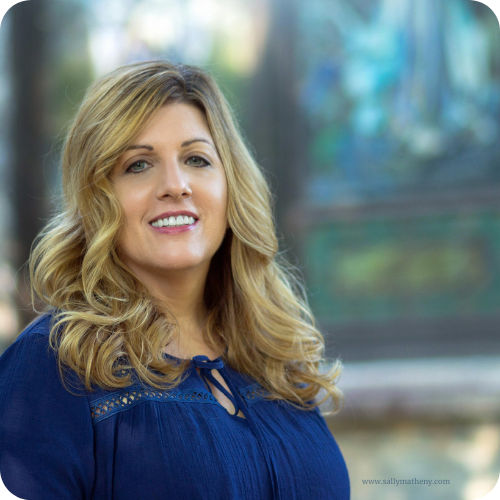
As a freelance writer, Sally Matheny’s writing is published in worldwide, national, regional, online and print publications including Appleseeds, Clubhouse Jr., Homeschooling Today, and The Old Schoolhouse.
As a blogger and speaker, Sally encourages parents and grandparents to live victorious and to tell the next generation wondrous things. Connect with her on several social media sites, but her favorite hangouts are at SallyMatheny.com and Pinterest.
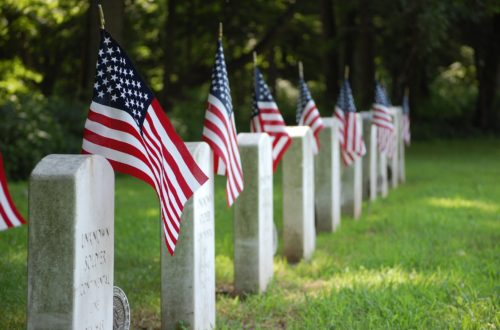
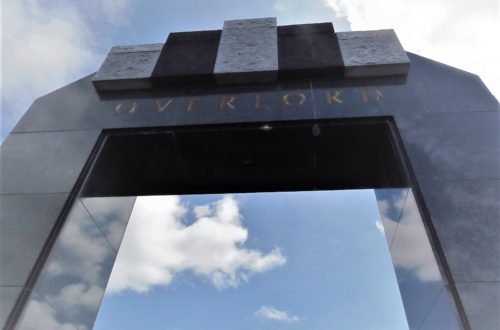
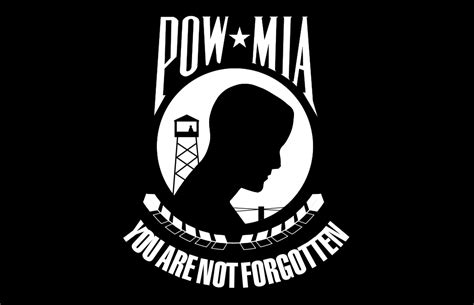
2 Comments
Tim Shoemaker
Nice post, Sally, and a great reminder!
Sally Matheny
Hi, Tim. Thanks for stopping by!